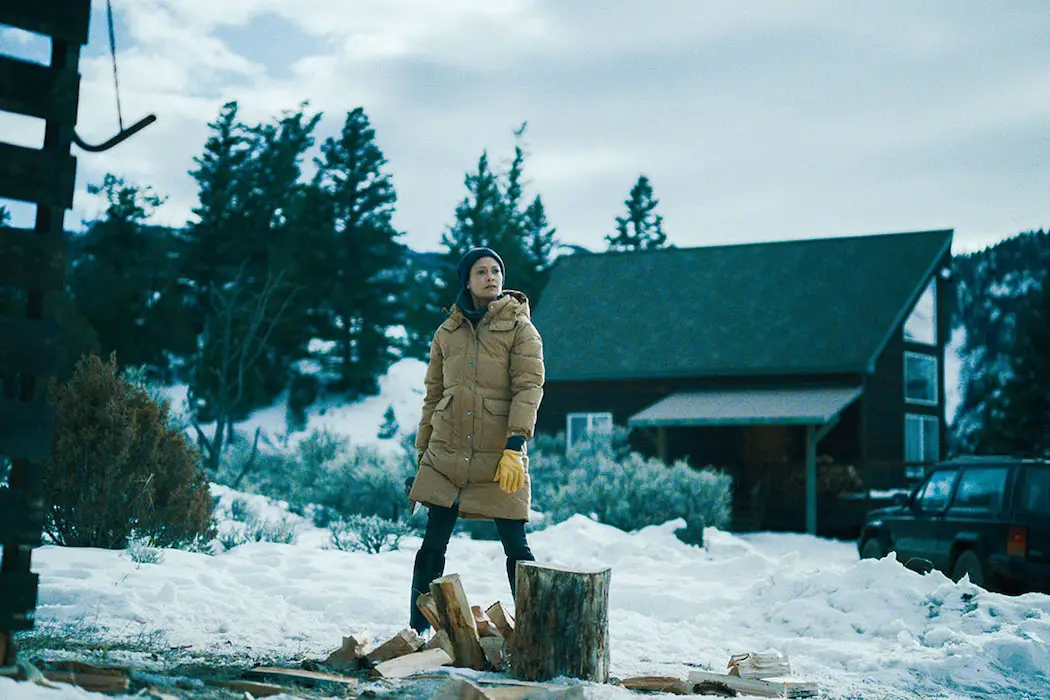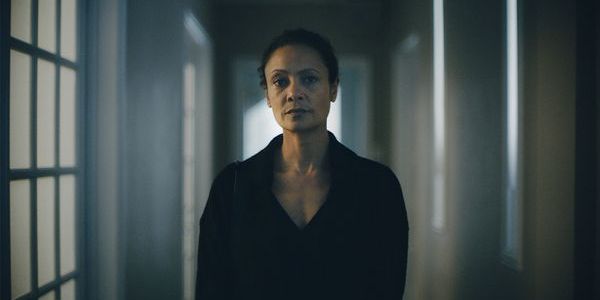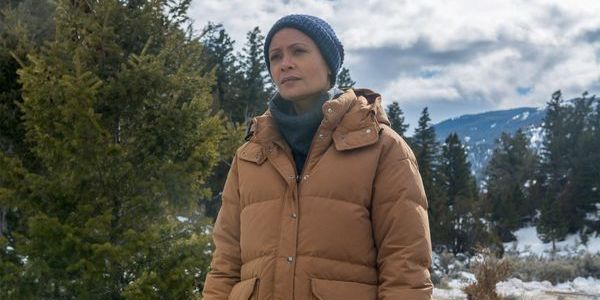Sundance Film Festival 2022: GOD’S COUNTRY

Wilson is a cinema enthusiast based out of Toronto, Canada.…
There’s a quiet sense of brutality that envelops God’s Country, and Julian Higgins takes an introspective dive into the underbelly of humanity’s darker instincts. The film surprises in its thoughtful and honest exploration of how little society has really evolved, especially when stripped down to its elements. Thandiwe Newton gives a career-best performance, portraying strength and vulnerability with profound intensity as the film’s protagonist. It’s a bit of a slow-burn, but once it picks up steam, God’s Country is a thrilling ride that keeps you on edge.

Following the passing of her mother, Sandra (Newton) begins viewing her life with a slightly different shaded lens. While noticing some racial and gender biases at her own university, where she works as a professor, it’s interactions with two local hunters (Joris Jarsky and Jefferson White) that really trigger hostile emotions that become hard to tame. As Sandra continues to confront these two men, borrowing from her previous life as a cop in New Orleans, she ignites a larger conflict that slowly involves other members of the rural township. Tanaya Beatty plays a budding graduate student who faces similar challenges in our own way, with Kai Lennox and Jeremy Bobb also turning in strong performances as supporting characters.
Maintaining Composure with Raw Intensity
What’s most impressive about God’s Country is its restraint in tackling issues that are easily flammable, while never losing grip on the vicious pretenses of the narrative’s underlying message. By focusing the story on a character who moves closer to nature after her home city of New Orleans is ravaged by a natural disaster, Higgins and Shaye Ogbonna’s screenplay leans into our continued struggle of nature versus grace. It poses the question of whether humanity is more graceful than its natural – and often barbaric – instincts and provides an answer through Sandra’s actions as a wounded product of the world we all live in. Through her own grief and being a recipient of unfair hatred, she’s forced to throw out her more academic sentiments, and instead, embrace her innate emotions.
Newton strives at decomposing Sandra’s composure as her life continues to unravel before our eyes. Even when she eventually breaks down, the cracks are clearly visible with each contentious interaction she shares with some truly vile beings. Much like the world around us, where cruelty is often hidden under the rubble of social constructs, Newton’s performance is reflective of this sad truth in human form. Higgins’ delicate approach to maintaining intensity from the film’s very first scene, and only escalating the level of burn as the story progresses, is done in a masterful way. God’s Country feels like a thriller at times, but reveals its horrors through events and occurrences that are grounded in truth. Everything about this film feels real, perhaps because what we see on screen is in some ways reflected through our own lived experiences.
A Narrative that Keeps Unpacking
Based on the short story Winter Light by James Lee Burke, Higgins and Ogbonna have shifted the story from portraying an elderly white man, to a younger woman of colour. This change in perspective likely shifted the narrative’s commentary on race and gender, among the many other facets it seeks to dissect. Whether it’s religion, toxic masculinity or representation (and the list can go on and on), God’s Country tackles so many different issues in both subtle and loud ways. It’s surprising how much was packed into a film that clocks in at only about 100 minutes. Things never feel overwhelming or overstuffed, and every social assertion is stated with clarity.
Much of the film’s messaging also comes from Andrew Wheeler’s sharp cinematography, which captures the vast and haunting emptiness of the wild, while also encapsulating a degree of claustrophobia that reflects Sandra’s mental state. There’s a feeling that the world is closing in on Sandra as her primal instincts take over out of necessity, and the complex issues posed by the narrative become simpler as nature takes its course. Every scene is crafted with astute detail and captures the right amount of growing burden. There’s a lot to think about and digest, which certainly necessitates a second viewing.

God’s Country was a much darker endeavour than I expected, but the film never dwindles into something that feels completely unhinged. Through a profoundly surreal performance by the great Thandiwe Newton, it’s hard not to fall into an abyss of existentialism and critically appraise humanity’s natural darkness. Despite our inherent progress as a society, we still live in a world that is far from perfect. A film like God’s Country forces us to view many of these inconvenient truths by connecting with our natural sensibilities as humans, whether they be good or bad. This is assured filmmaking at a very high level.
Are you looking forward to seeing God’s Country? Let us know in the comments below!
Does content like this matter to you?
Become a Member and support film journalism. Unlock access to all of Film Inquiry`s great articles. Join a community of like-minded readers who are passionate about cinema - get access to our private members Network, give back to independent filmmakers, and more.
Wilson is a cinema enthusiast based out of Toronto, Canada. He escapes from his day job by writing random thoughts about cinema on the internet. Although he has a longstanding penchant for Hong Kong cinema, he considers himself to be an advocate for Asian cinema in general. He has been attending the Toronto International Film Festival every year since 2005, and more of his work can be found on his website: www.wilson-kwong.com.













